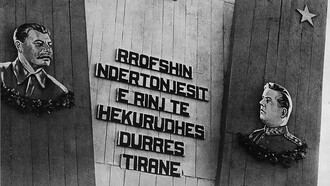In one year, the United States will celebrate 250 years of independence and feel pride in the lofty and pious words stated in the Declaration of Independence. The Declaration of Independence, on July 4, 1776, asserted that “all men are created equal and endowed with unalienable rights including life, liberty, and the pursuit of happiness.” Equally significant was the right of the colonists to revolt if their rights were violated or not protected.
Frederick Douglass asked, “What to a slave is the Fourth of July?” The question should also be, “What, to the enslaved freedom fighter, is the meaning of the words of the Declaration of Independence?” Those courageous men who fought to secure freedom for the enslaved have been minimized or condemned as savages and criminals.
Those who fought to secure freedom from the British were not regarded as objects to be sold or brutalized; they had personal freedom; most importantly, they were considered to have the “natural rights” of humanity. Their revolt was for societal, not for the freedom to secure their humanity. Force and violence were necessary and used to free the colonists from Britain, and heroes were honored.
Freedom is recognized as a fundamental human right. The stated cornerstone of American ideals, the Declaration of Independence was the source of inspiration for those enslaved who sought self-determination, freedom, and human rights. Some, however, have paid a much higher price than others as they sought to experience the natural rights that all humans deserve. Those felt to be undeserving of freedom, who engaged in the fight for freedom, as well as many uninvolved enslaved and free Blacks, were brutally and savagely massacred as punishment and revenge for the actions of the freedom fighters.
Therefore, several questions must be explored: Why were the actions of the freedom fighters constantly questioned and criminalized? Who then deserves and has the right to secure freedom as expressed in the Declaration of Independence? Are there inconsistencies in the beliefs that underlie the lofty ideals stated in the document?
Why have historians neglected to tell the full story of rebellions in the United States? Those who led rebellions did so to restore the humanity of their group, to seek justice from brutality, the destruction of families, the denial of the right to practice cultural traditions, even to possess their family-given names. Insurrection by the enslaved was intended to destroy an immoral system of dehumanization.
Telling the truth of the rebellions and the leaders exposes the mythology created by white supremacy ideology of the intellectual and cultural inferiority of the enslaved. Cognitive dissonance occurs as the myths of dependency and childlike personalities are refuted by the human capacity of the enslaved to rebel. Finally, the belief in the paternalism or myth of enslaved and master familial harmony is destroyed.
Accurate American history requires that true freedom fighters be acknowledged and their stories told. The enslaved in historical narratives are always presented as “subjects,” their words and actions are described, but we are never able to relate to their “human feelings.” The withholding or absence of feelings of the enslaved in our narratives allows no real connection to the enslaved and prevents empathy and compassion for them as human beings. Yes, enslavement ended some 160 years ago, but its legacy remains with us today. Unless, at some level, we are able to understand the feelings of the enslaved, we will never be able to comprehend fully the consequences of oppression and inhumanity upon other humans.
At some point, we must consider the enslaved not just as a group but as individuals with human feelings. We must consider what it must have felt like to know that you are really human, no matter what the master or society believed about you, and that you have human emotions of fear, pain, grief, and anger. You, however, feel trapped in a body considered to perpetually belong to and be controlled by another. What happens on that day or hour when you are with a fire burning in your heart and soul that will not surrender, simply say” enough “. “ I will restore the humanity of myself, my family, and my people by any means necessary. I will live free or die.”
The true stories of freedom fighters such as Gabriel Prosser, Denmark Vesey, and Nat Turner must be told, as well as the Stono Rebellion and the German Coast Uprising of 1811. Those who led these rebellions stand out as examples of true freedom fighters. Their stories should be taught in history books, and the justification of their revolts and strategies critically analyzed. It is hypocritical not to acknowledge these leaders who displayed the courage and fortitude to seek the freedoms promised by the Declaration of Independence for “all men.” Their feats, though unsuccessful, are demonstrations of the innate desire for freedom and recognition as a human being. The stories of these freedom fighters will come as a series. As each leader and revolt is described, as a reader, try to imagine how you, as a human being in that same condition, would have reacted and responded.















